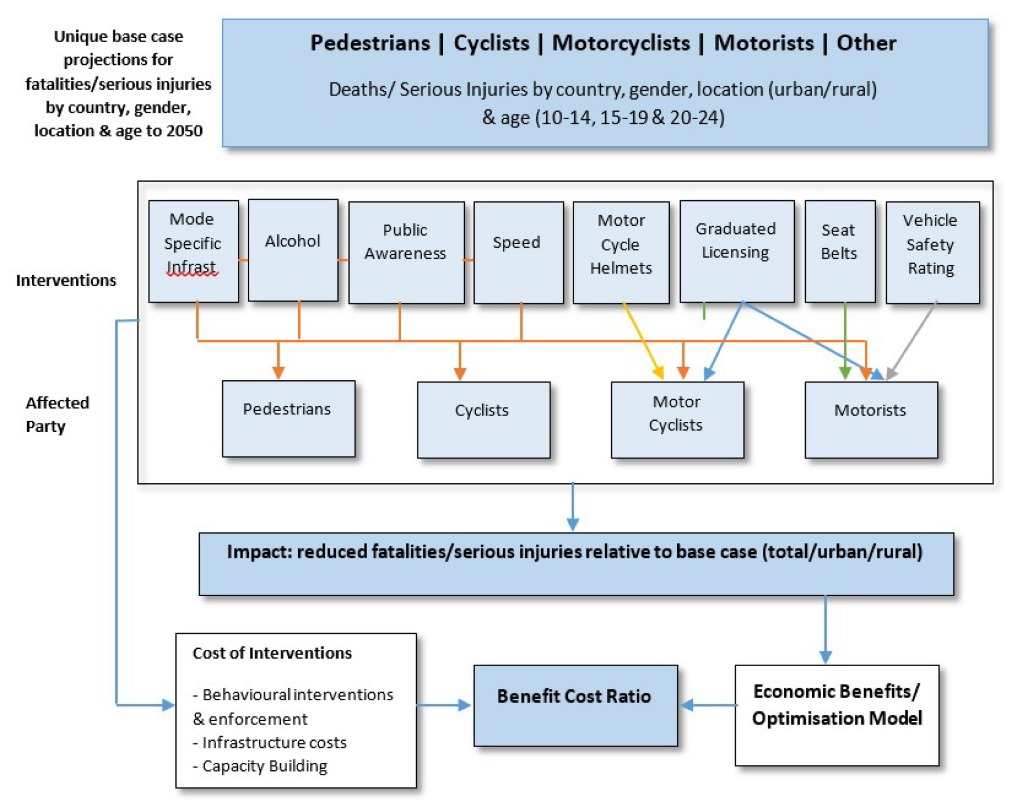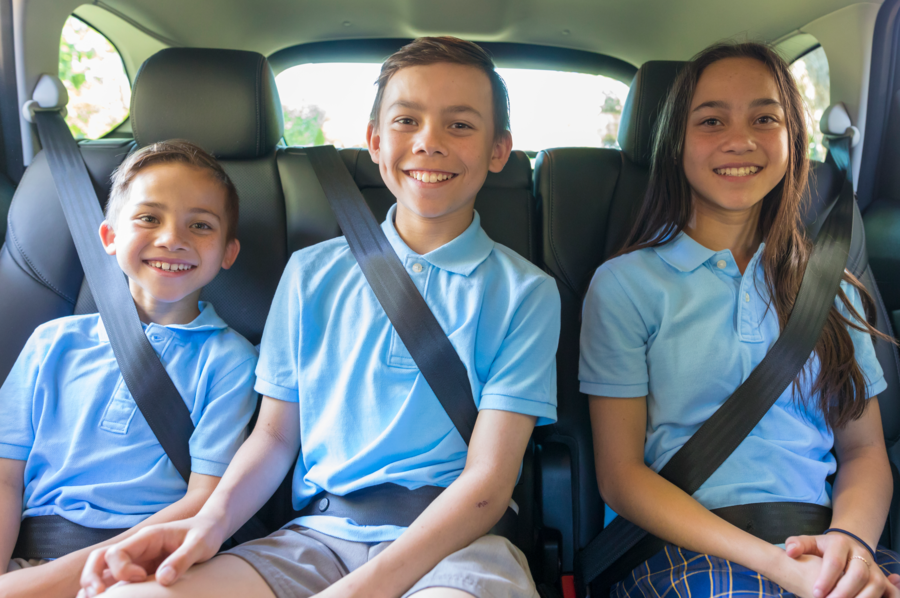iRAP data has informed research conducted by the Australian Murdoch Children’s Research Institute and Victoria University into the development of an investment case to reduce road traffic injuries among adolescents.
Road traffic injuries are one of the leading causes of death and serious injury among young people and a major issue for low- and middle-income countries (LMICs), inflicting widespread economic and social harm. They can and must be addressed by local adaptation of policies and interventions that have been well developed in high-income countries.
Most of the evidence for the effectiveness of interventions to reduce road traffic injuries derives from studies done in high-income countries.
This research, funded by FIA Foundation, aimed to address the gap, building on previous research by the Victoria Institute for Strategic Economic Studies to develop a model for understanding the impact of a range of interventions on deaths and injuries from road traffic accidents in a variety of settings in LMICs.
The research focussed on the impact of road safety interventions on the 10 to 24 year age cohort using Global Burden of Disease (GBD) 2019 data for 77 LMICs. It had a number of phases:
- Review of evidence on the effectiveness of interventions to reduce road traffic injuries in LMICs
- Costing of investment cases
- Development of the Road Safety Intervention Model (RSIM)
- Development of an Economic Model to express the health outcomes of reduced deaths and serious injury in economic terms and enable the development of return on investment analyses
- Application of the RSIM and economic modelling to case study countries including Tanzania, Vietnam and Colombia
The Extended Road Safety Intervention Model (RSIM)

Infrastructure interventions in the Road Safety Intervention Model (RSIM) drew upon work undertaken by iRAP and its partners using the iRAP Star Rating Methodology.
The modelling shows that if the interventions are implemented across the 77 countries, then between 2022 and 2050 the lives of over 1.9 million young people will be saved, as well as 11.7 million serious injuries averted.
In addition to the enormous reduction in fatalities and serious injuries, the economic analysis shows implementing the modelled interventions would be a very good economic and social investment, with BCRs between 4.6 to 66 for the 77 countries.
While the research gives a broad indication of the lives saved and serious injuries avoided together with the economic benefits, a more detailed analysis is provided in the case studies for Tanzania, Vietnam and Colombia, that may assist policymakers to develop effective road safety programs that fit with the social and cultural contexts of those countries.
Download the report HERE
Header image credit: iStock


















